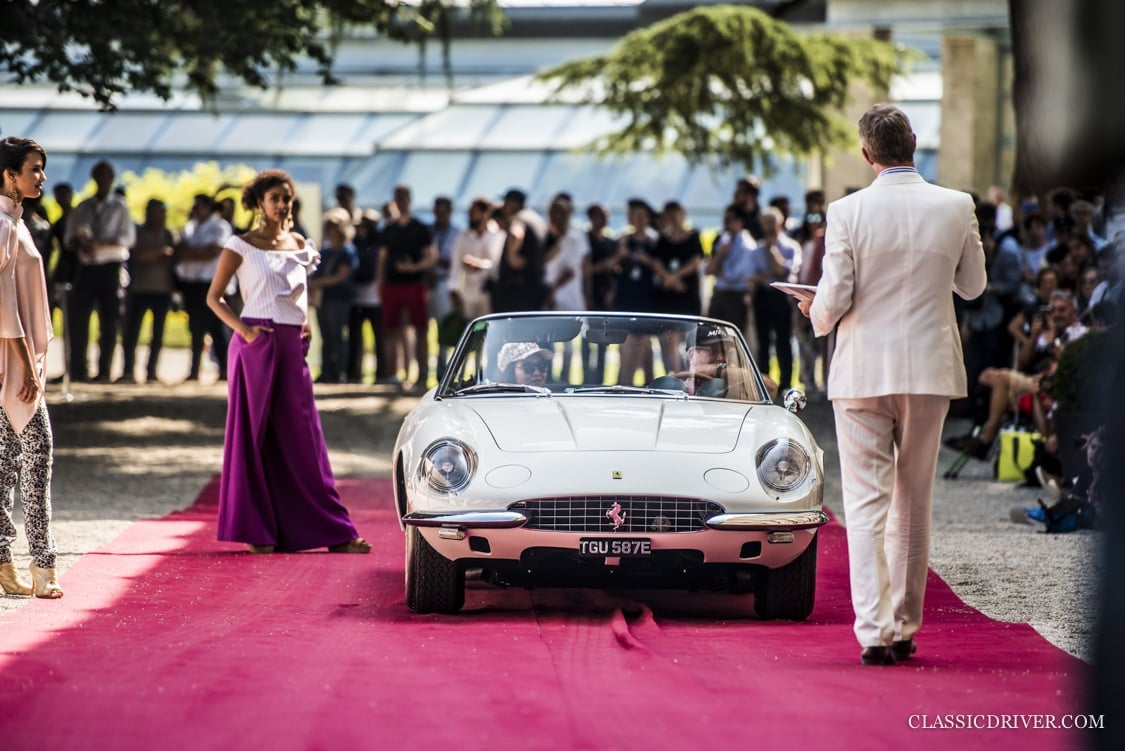


Sensual car bodies sparkle in the sun, Rivas rock gently on the waves, suave gentlemen and elegant ladies in light clothes stroll through the grounds — the Concorso d’Eleganza is, above all, a feast for the eyes. And yet, despite all La Grande Bellazza, it’s the eccentric stories and exalted tales that bounce around your head long after you’ve left the bubble of elegance…
Great stories
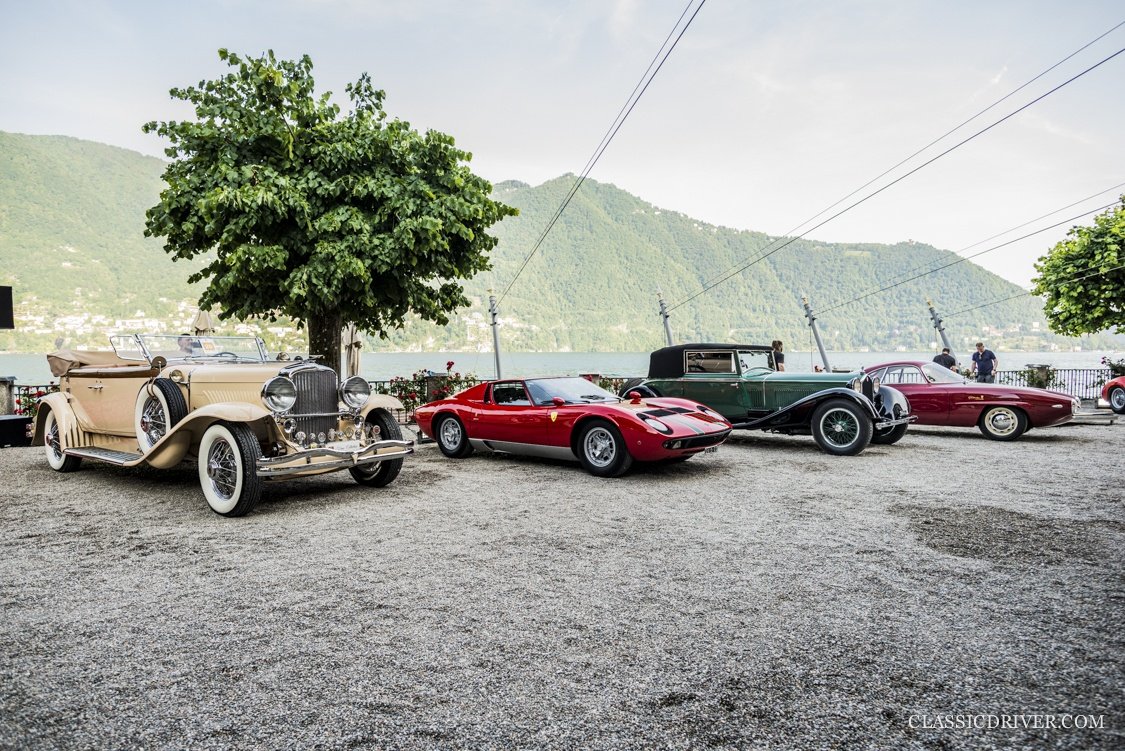

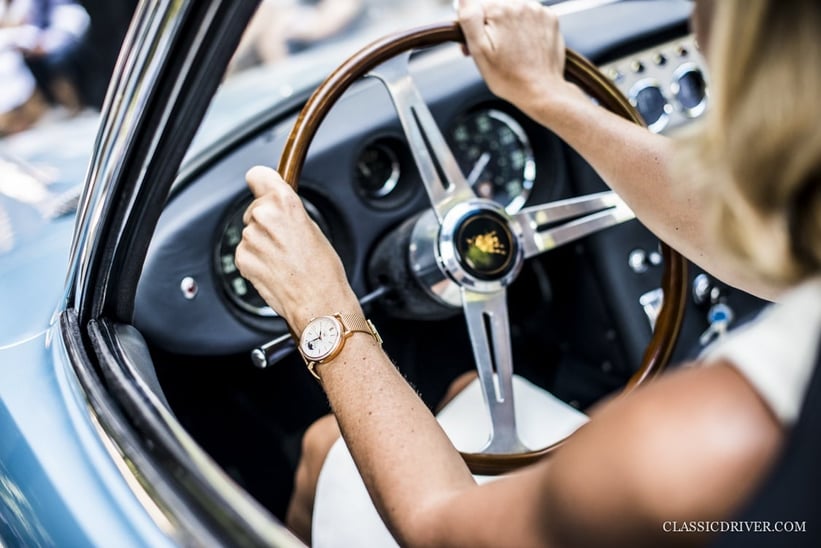
Take the 1938 Mercedes-Benz 540 K Cabriolet A, for example — once owned by a publisher from Berlin, it was hidden in a Ukrainian barn after the War and was only rediscovered by an American in the early 1960s. Meanwhile, the brilliant red Lamborghini Miura, with its vibrant green stripes, once belonged to the son of Sherlock Holmes inventor Arthur Conan Doyle, who was a playboy who pulverised his father’s fortune with fast cars and similar costly amusements. Dean Martin also had an unusual taste in cars, as evidenced by his Ghia L 6.4, complete with a revolver holster concealed under the driver’s seat.
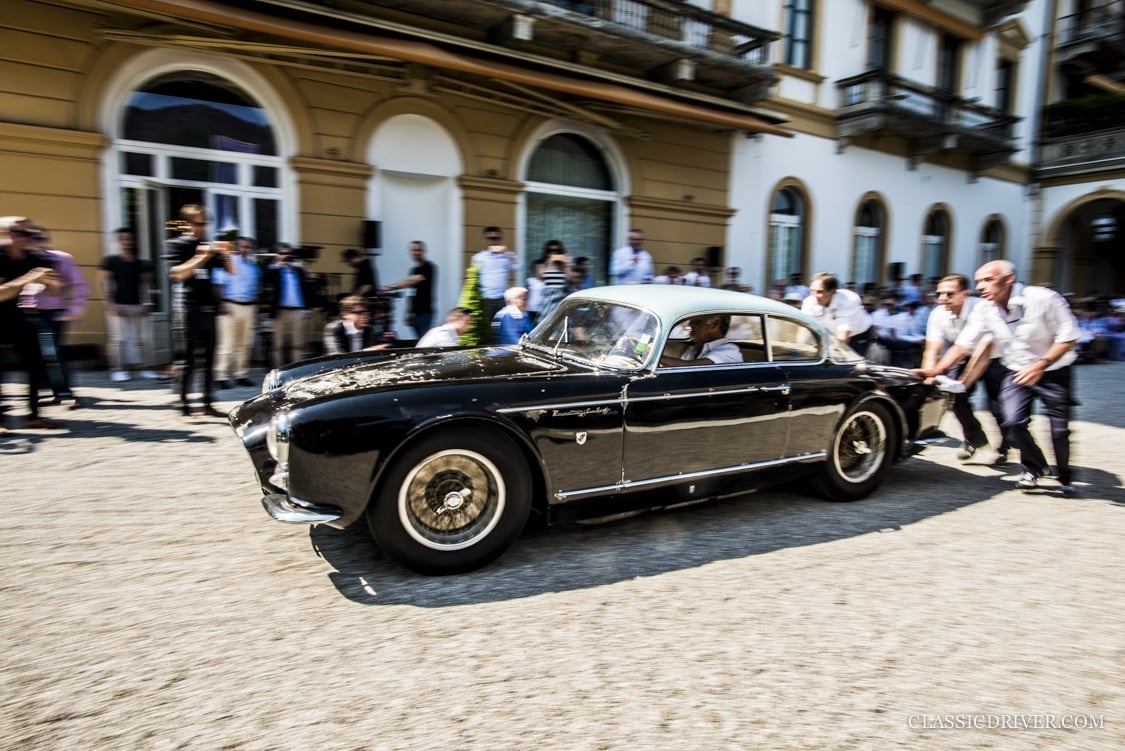

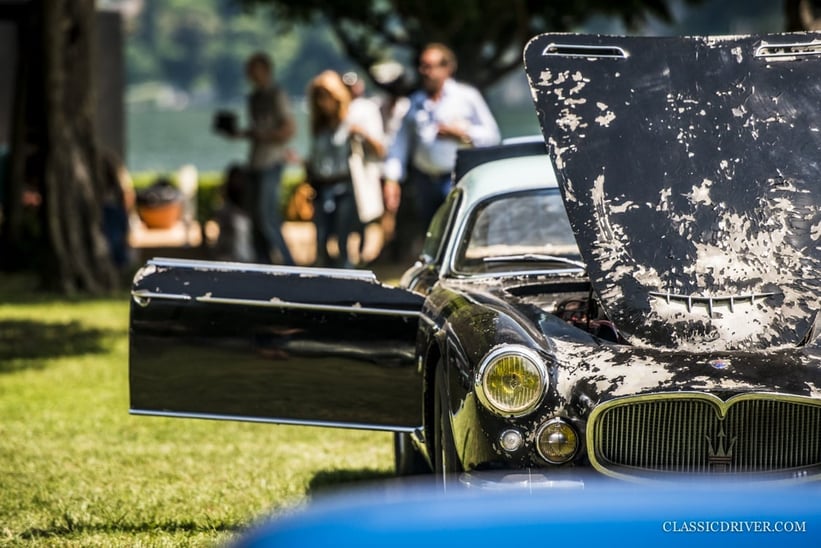
It is, of course, a good thing for cars’ unusual histories to continue today: Jonathan Segal, the San Diego-based architect and owner of the Maserati A6G/2000 Gran Sport from the legendary Baillon Collection, has already travelled 3,000km since purchasing the unrestored classic in 2015, as is evidenced by its peeling paint and crumbling leather —we like to think he drives his ‘Rustyrati’ to the supermarket at the weekends. The seemingly carefree ownership of such valuable automobiles seems to be in the American temperament, with Brendan M. Finn, the owner of an extremely rare seven-litre Cobra with gorgeous narrow hips, is taking the car on a grand Italian tour straight after the concorso.
Impressive shapes
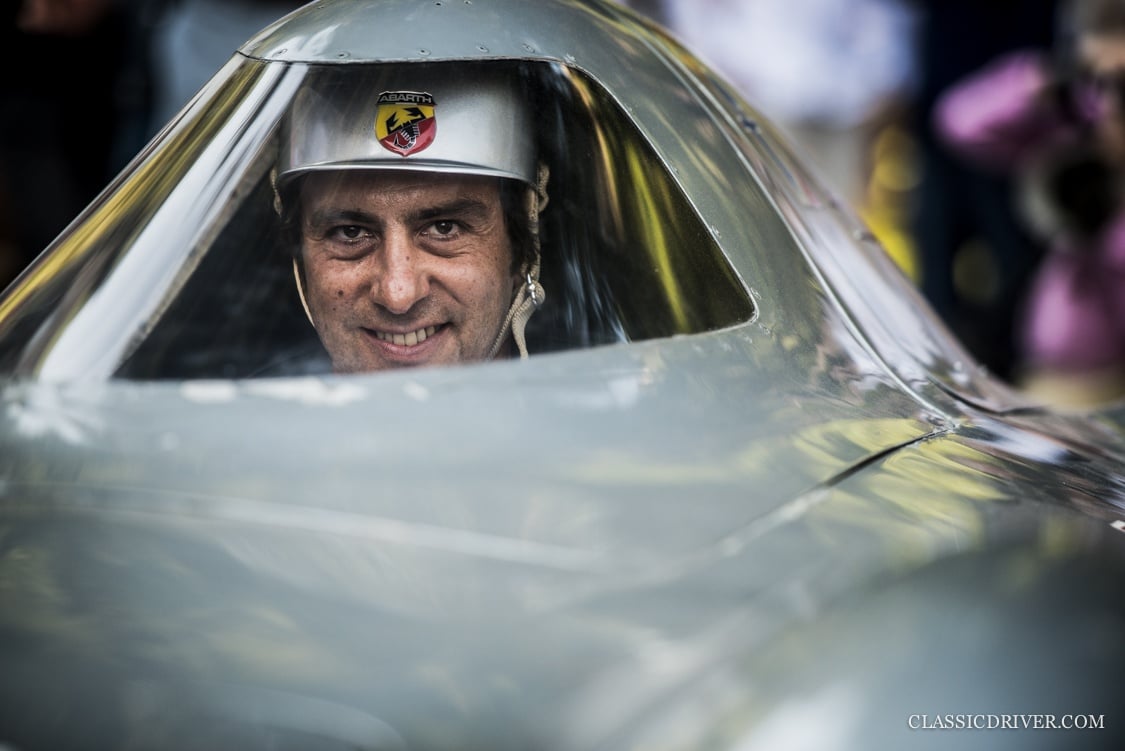
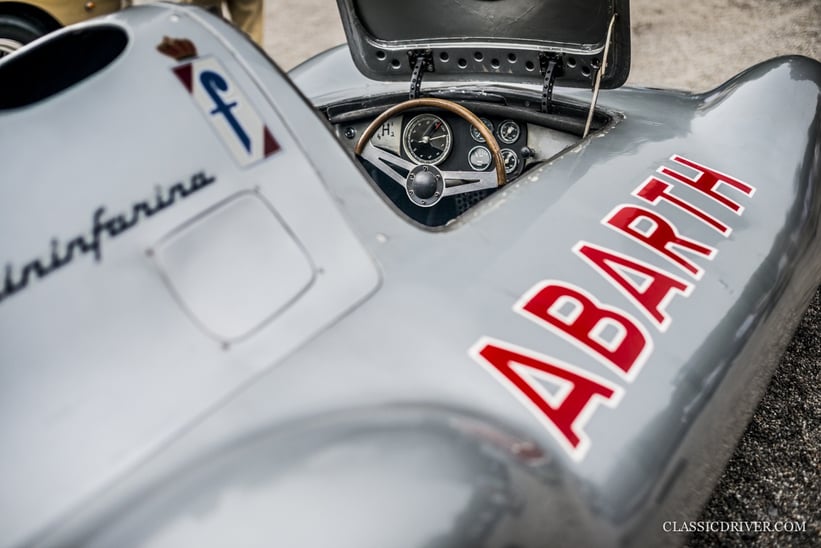

At the Concorso d’Eleganza, it’s not always the most graceful forms that garner the most attention. The Abarth 1000 Bialbero ‘Record Monza’, a wind-honed animal from 1960 that set impressive speed records in its time, was the undoubted favourite of all Instagrammers and iPhone reporters. A somewhat more civilian yet fascinating representation of the post-War aesthetic spirit, the Fiat 8V Supersonic is one of the rarest and most attractive examples of European Jet Age design. A newcomer on Lake Como was also the 1934 Tatra 77, which is among the great avant-garde designs, not only for its aerodynamic shape but also for its air-cooled V8 rear engine.
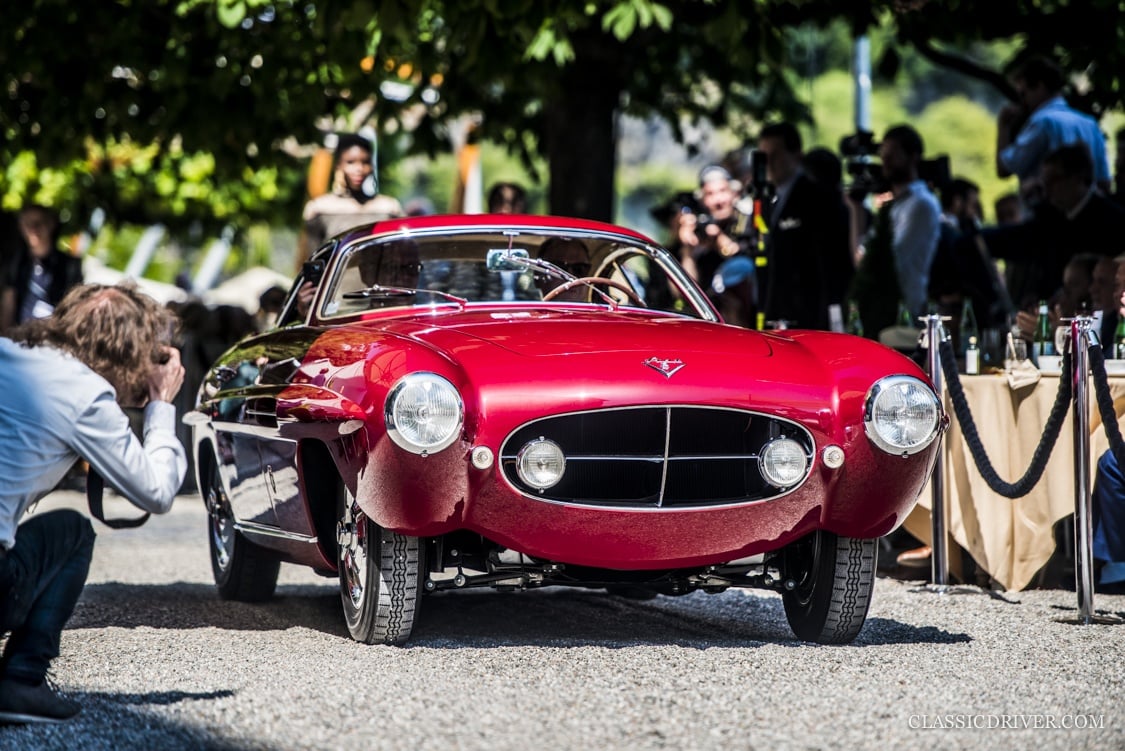
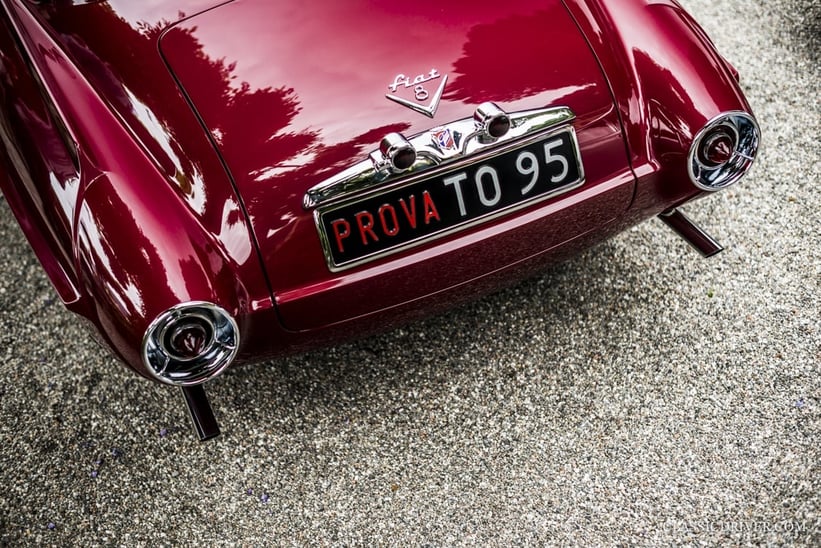
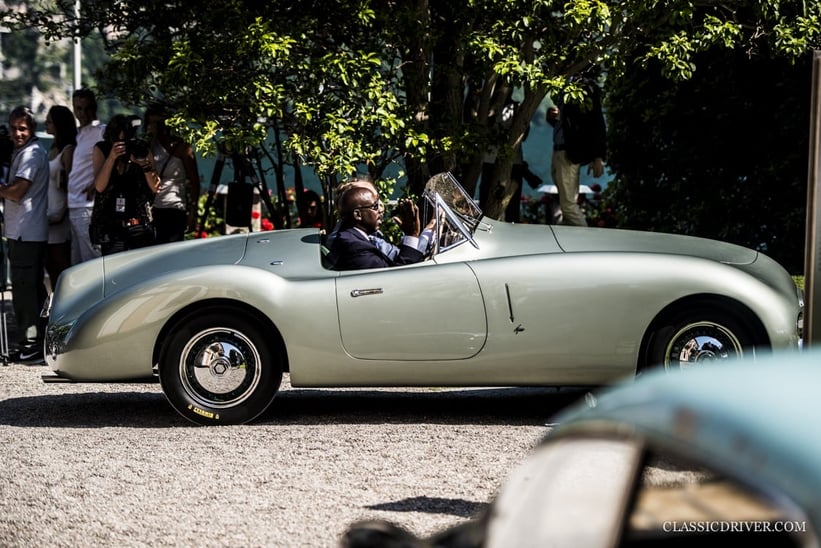
For a splash tour through the narrow alleyways of Ticino, one would prefer to commandeer one of the small Italian cars from the post-War years, especially the Fiat 1100 designed by Pietro Frua, with its slightly strange tail fin, and the O.S.C.A. MT4. The latter was a brainchild of the Maserati brothers, the Orsi family, Alfredo Vignale, and Giovanni Michelotti — some of the greatest names of the Italian automotive industry.
Every little helps
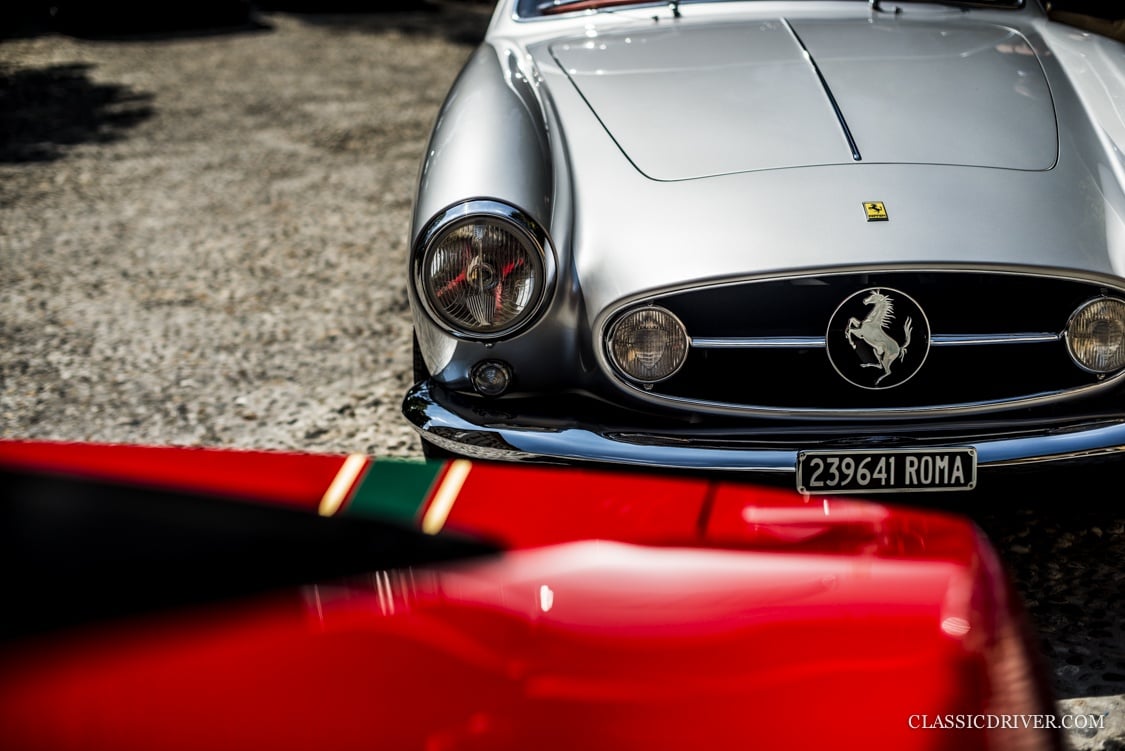
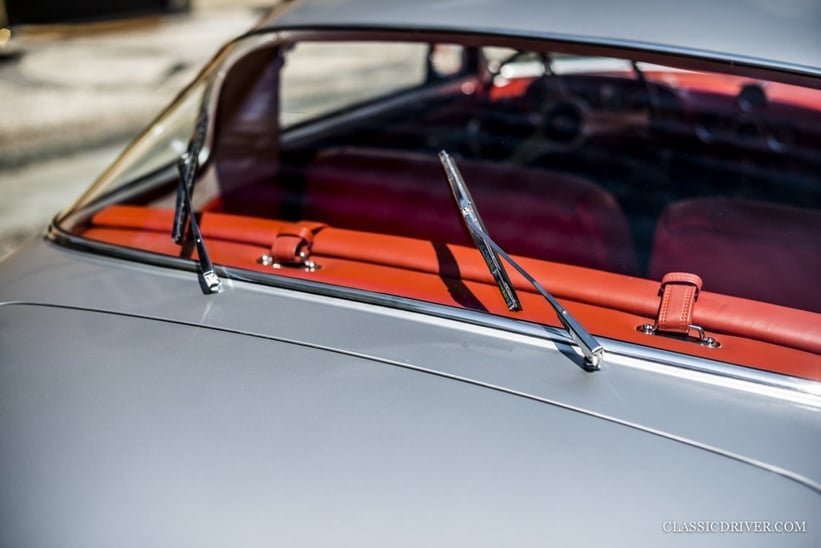
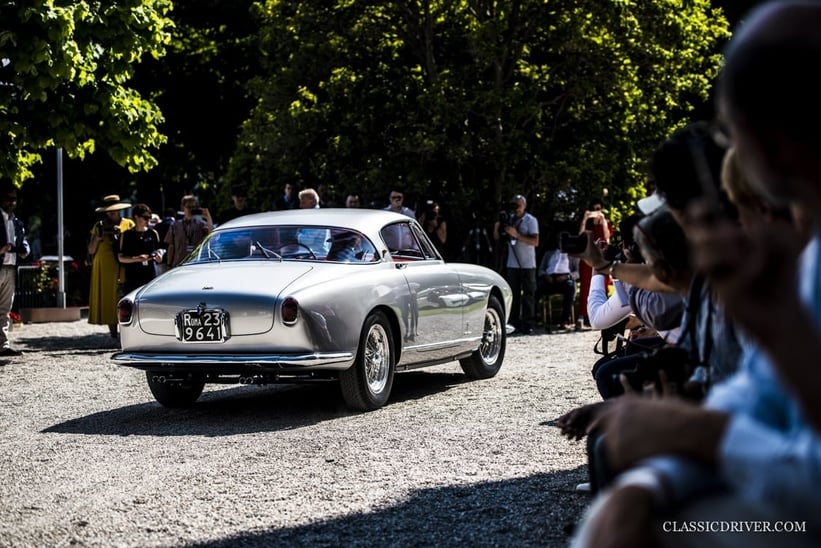
As is always the case, it’s worth taking the time to explore the numerous tailor-made features on these cars that reveal so much about the style of their times. There was the Ferrari 250 GT Europa Speciale — a sinfully expensive model, which was equipped from new with rear window wipers for its original owner. It seems the gentleman from Rome, who bore the appropriate family name of Ferrario, was not overly enamoured with his special sports car, as he sold it for less than 30% of the original price after just one-and-a-half years.
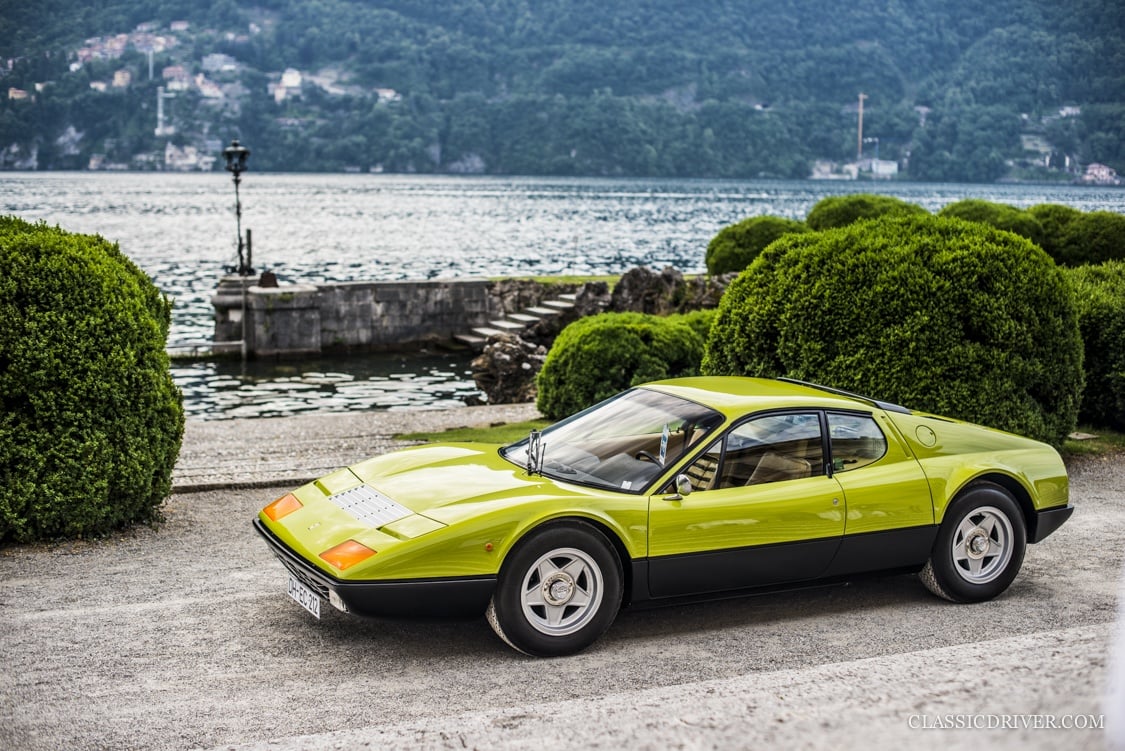
The 1976 Ferrari 365 GT/4 Berlinetta Boxer in attendance was the only such example finished by the factory in the venomous shade of Verde Germoglio and was painstakingly restored by André Herklotz, the Ferrari specialist and the first owner’s son-in-law. As a precursor to today’s trend for matte lacquer, the Mercedes-Benz 300 SL Roadster, finished in silky grey with a turquoise interior, was particularly special. The customer for such an extravagant automobile was the economic and industrial wonder Dr Kurt Schneider, who proudly presented himself to the public accompanied by a tame cheetah.
Around the World in 80 Days
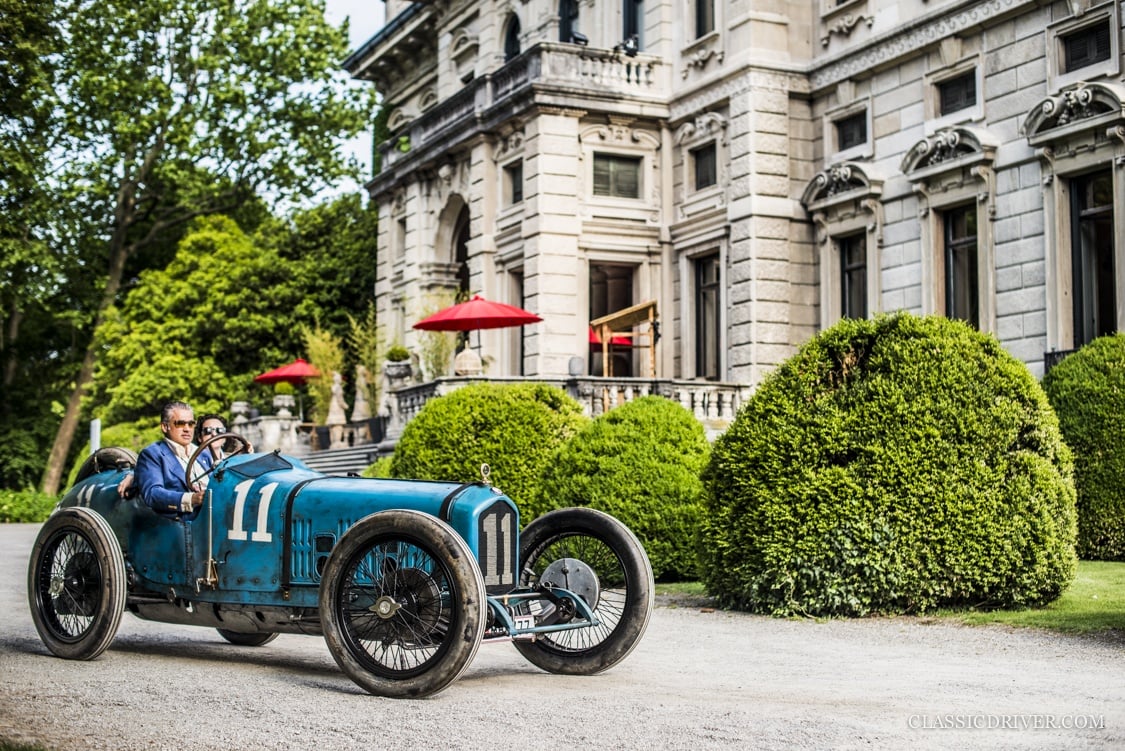
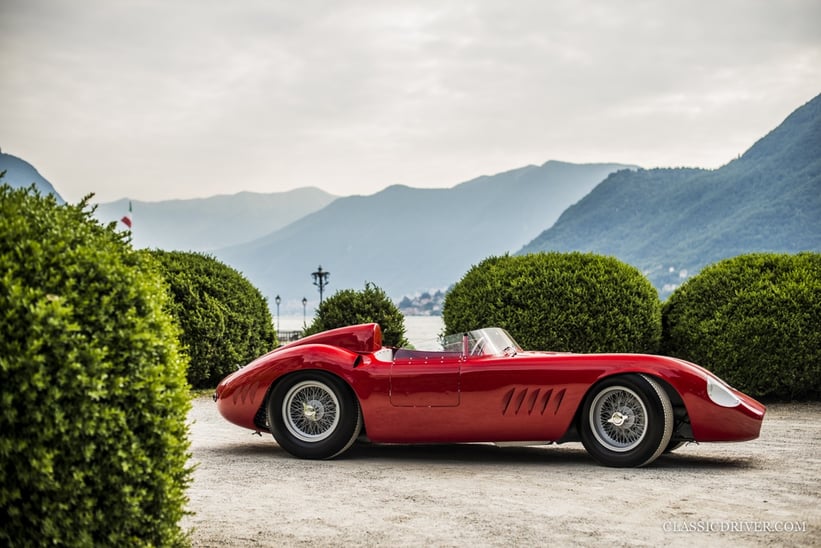

Matching the motto for this year’s Concorso d’Eleganza, borrowed from Jules Verne, there were also a number of well-known record hunters and speed vendors on the gravel of Villa d’Este. At the command of both Malcolm Campbell and ‘Bentley Boy’ Jack Dunfee, the 1920 Ballot 3/8 LC served as a chariot at two battlegrounds. Still, the car’s artificial patina appeared somewhat questionable. As an archetype of the Italian racer, the bright red Maserati 300 S is a staple of automotive history. The two-seater sports car, which was bodied by Fantuzzi in 1958, was piloted in period by none other than Sir Stirling Moss. In the meantime, the Ferrari 250 GT ‘Short Wheelbase’ Competizione with Tour de France success and the 365 GTB/4 Competizione with Le Mans history were competing for the titles of the most desirable racing Prancing Horses.
Winner, winner
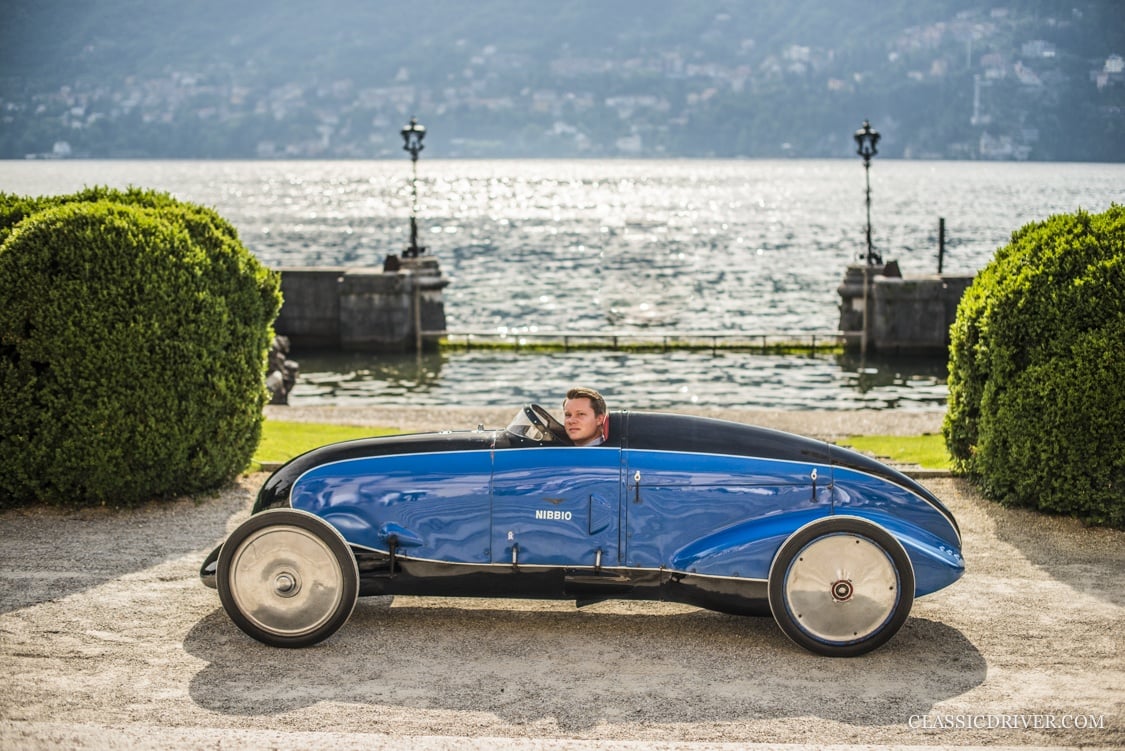
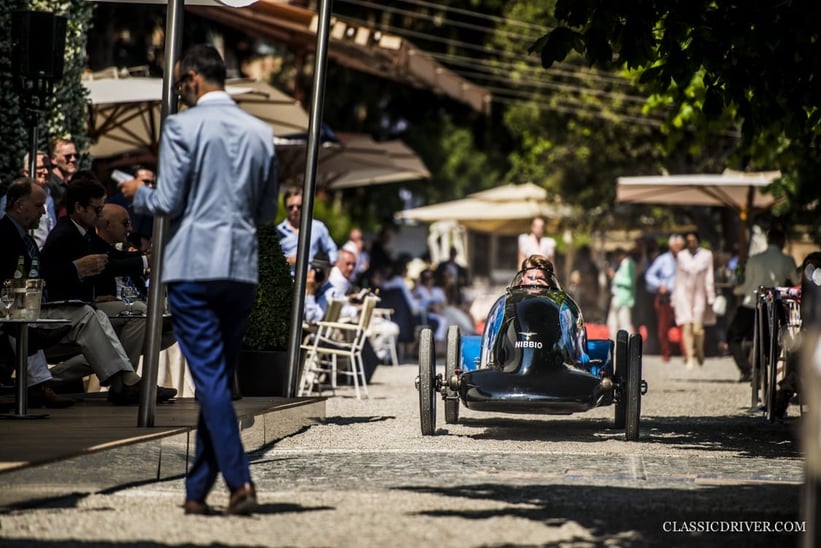

The great terrace of Villa d’Este is, of course, the perfect place in which to discuss the winners of the weekend’s most important trophies. Twenty-seven-year-old Federico Göttsche Bebert, from Italy, celebrated winning the audience-voted Coppo d’Oro award with his Lurani Nibbio, which was constructed by his grandfather Giovanni Lurani Cernuschi. The record-setting car’s Moto Guzzi V2 caused many a champagne flute to shudder when it paraded the grounds — we can’t comprehend just how this knee-high contraption with just 500cc was able to reach more than 160 km/h.

The jury also agreed that the missing link between Bertone’s legendary BAT concept cars and the Alfa Romeo Giulietta SS was befitting of the Best of Show trophy and the winner’s watch from A. Lange & Söhne. And what better 60th birthday present for the prototype, which was designed by the Grand Master Franco Scaglione in 1957, than the Trofeo BMW Group? In addition to Giovanna Scaglione, the daughter of the legendary designer who proudly presented the prototype, there was another winner: the Alfa resides in the sacred halls of super-collector Corrado Lopresto, who’s long deserved the automotive Oscar for his conservatory services to Italian automobile culture.
Photos: Rémi Dargegen for Classic Driver © 2017
























































































































